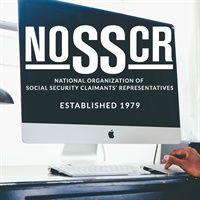
Bessel van der Kolk – Developmental Trauma Disorder: The Nexus of Attachment, Trauma and Brain
Salepage : Bessel van der Kolk – Developmental Trauma Disorder: The Nexus of Attachment, Trauma and Brain
Archive : Bessel van der Kolk – Developmental Trauma Disorder: The Nexus of Attachment, Trauma and Brain Digital Download
Delivery : Digital Download Immediately
- Bessel van der Kolk, Professor
1 hour 14 minutes in length
Audio and video formats are available.
Copyright: 14 February 2014 DescriptionPrior to 1980, hundreds of thousands of Vietnam soldiers returned home with symptoms that did not match any known diagnosis. With the inclusion of the PTSD diagnosis in the DSM III, their illness could be diagnosed and therapies established. Today, we find ourselves in a similar scenario. Every year, 10 times more children in the United States are reported to be victims of domestic violence, neglect, and abuse than combat troops from Iraq and Afghanistan with PTSD. However, because the current DSM-IV definition of PTSD does not match the symptoms reported by the great majority of these children, these youngsters live in a diagnostic gap. Because when trauma happens in the context of what is intended to be a secure interpersonal relationship, the trauma image takes on a radically different shape and has tremendous impacts on brain development and self formation. As a result, mistreated and neglected children are diagnosed with conditions as diverse as bipolar illness, conduct disorder, ADHD, and other anxiety disorders. All of these diagnoses are unrelated to trauma and lead to pharmaceutical and behavioral control at the expense of coping with the dread, humiliation, terror, and wrath that stem from actual risks to these children’s lives. Inadequate diagnosis also has serious consequences for insurance reimbursement, therapeutic development, and clinical research. As a result, these youngsters are sentenced to receive therapies that are likely to be useless, putting them at risk of growing up to be unproductive, costly, perhaps dangerous, and long-suffering members of our society.
In response to this apathy toward our country’s most serious public health threat, the National Child Traumatic Stress Network’s DSM-V Task Force has proposed a new clinical syndrome, Developmental Trauma Disorder, based on a literature review of approximately 100,000 chronically traumatized children and direct systematic observations of 20,000 traumatized children. This diagnosis describes the five clusters of symptoms that characterize many children who have experienced repeated interpersonal trauma: (1) affect and impulse dysregulation; (2) disturbances of attention, cognition, and consciousness; (3) distortions in self-perception and meaning systems; (4) interpersonal difficulties; and (5) somatization and biological dysregulation.
This talk will go through the history of DTD as a diagnosis and provide an outline of the DTD field trial for future inclusion in the DSM-V.
Faculty
M.D. Bessel van der Kolk 58 related seminars and products
Bessel A. van der Kolk, M.D., is a post-traumatic stress disorder clinician, researcher, and educator.
His research blends developmental, neurobiological, psychodynamic, and interpersonal components of trauma’s impact and therapy.
Dr. van der Kolk and his colleagues have published extensively on the effects of trauma on development, including dissociative disorders, borderline personality disorder and self-mutilation, cognitive development, memory, and the psychobiology of trauma.
Over 150 peer-reviewed scientific studies on neuroimaging, self-injury, memory, neurofeedback, Developmental Trauma, yoga, theater, and EMDR have been published by him.
He is the creator of the Brookline Trauma Center and the President of the Trauma Research Foundation, which promotes clinical, scientific, and educational programs.
The Body Keeps the Score: Brain, Mind, and Body in the Treatment of Trauma, his 2014 New York Times best book, alters our understanding of traumatic stress by exposing how it actually rearranges the brain’s wiring – especially sections dedicated to pleasure, engagement, control, and trust.
He demonstrates how these regions might be reactivated through novel treatments such as neurofeedback, somatically based therapies, EMDR, psychodrama, play, yoga, and others.
Dr. van der Kolk is a psychiatry professor at Boston University Medical School and the previous president of the International Society for Traumatic Stress Studies.
He travels the world teaching at conferences, colleges, and hospitals.
Disclosures for Speakers:
Bessel van der Kolk is a psychiatry professor at Boston University School of Medicine.
PESI, Inc. pays him a speaking honorarium.
Bessel van der Kolk does not have any relevant non-financial relationships to declare.
More from Categories : Health & Fitness














Reviews
There are no reviews yet.